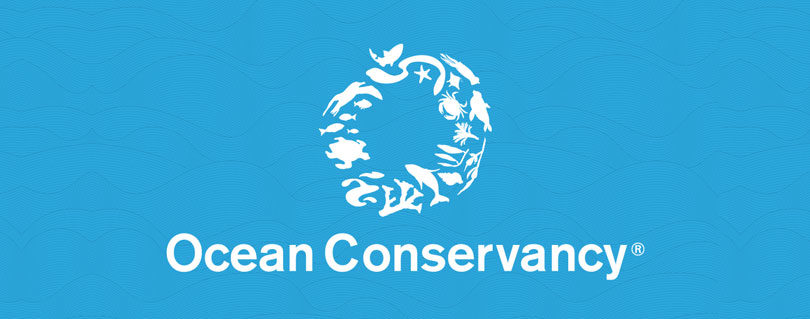New Initiatives to Fight Ocean Plastic on the Eve of Greenbiz
Published by Ocean Conservancy
A Wall Street Journal article reported recently that “The world’s biggest makers of shampoo, detergent and packaged food will test selling their products in reusable containers, adopting a milkman-style model to address mounting concerns about plastic waste.” In May, shoppers in New York and Paris—eventually followed by Tokyo and other cities—will be able to fill up on certain products with glass or steel containers, sending the containers back to be cleaned and redistributed again.
This “milkman” style initiative for home products is an important development in the fight against ocean plastics, involving some of our Trash Free Seas Alliance® members.
Ocean Conservancy took a significant gamble in launching the Trash Free Seas Alliance® (TFSA) back in 2012. We convened the first-ever cross-sector effort to combat ocean plastic—bringing together corporations, conservation groups, academics and scientists. Working with big-name corporations as an environmental nonprofit is not always viewed kindly, particularly in the ocean plastic space.
But after more than two decades of mobilizing the International Coastal Cleanup, over the course of which volunteers would remove millions of pounds of trash from beaches and waterways worldwide every year, we knew first-hand that cleanups alone would not solve the ocean plastic crisis. To effect lasting, systemic change at the scale required, we needed to understand all the different ways that plastic enters the ocean, and understand all the possible actors involved—including the consumer brands whose packaging are often found on beaches. How do those products get there? Why are these products designed the way they are? How can they be redesigned so that they don’t end up in our ocean?


The Trash Free Seas Alliance® is a platform for honest discussion on these questions between otherwise strange bedfellows, starting with the fundamental belief that no one wants to see plastic in the ocean, and that corporations have to be part of the solution in keeping plastic out of the ocean. It has proved fruitful. Scientists Dr. Jenna Jambeck, Dr. Kara Lavender Law and their research colleagues determined that a large portion of the eight million metric tons of plastic entering the ocean each year flows from just a few rapidly developing countries in Asia, where plastic waste generation is outpacing collection and recycling infrastructure. This new science indicated that the most impactful way to keep plastic out of the ocean is to improve waste management in those key geographies. Based on that finding, we worked with TFSA members to invest in research, analytics and field work that generated Stemming the Tide and then The Next Wave—guidance mapping how to actually implement solutions based on the new science. Just a few months ago, several TFSA members spearheaded a more than $100 million investment in Circulate Capital, a private investment firm focused on incubating innovative waste management solutions in South and Southeast Asia—arguably the epicenter of the ocean plastic problem.
Of course, while Dr. Jambeck et al.’s research showed that collecting and recycling trash would lead to a meaningful reduction of plastic entering the ocean, this is only one piece of the puzzle. We need a suite of solutions—from beach cleanups to improving trash collection to actually reducing our dependence on single-use plastics.
As we’ve learned from our work with TFSA, pushing multinational corporations to take on the entire suite of solutions is no easy feat, given business objectives that are not fundamentally framed to meet conservation concerns.
But the will is there and it is increasing. A few of these companies—including TFSA members PepsiCo, Proctor & Gamble, and Nestle—are taking on the challenge with their milkman initiative, and that’s an important step.
Also this week, more than 1,200 of the world’s brightest thinkers and most influential leaders will gather in Phoenix for GreenBiz ‘19 to do a deep dive into the pressing challenges, emerging trends and biggest opportunities in sustainable business today. I will be speaking about partnerships that Ocean Conservancy has forged to combat ocean plastic and our unique solution set to solving this problem during the ‘Combating Marine Debris with Courageous Collaborations’ panel on Tuesday, February 26.
Much remains to be seen, but for now this innovation is exciting. It shows that businesses are taking the reality of ocean plastic pollution—and consumers’ demands for alternative products—seriously. To end ocean plastic pollution, we must all continue to push innovation and critical thinking, take risks and embrace the full solution set to solve this complex problem. We need everyone on board, and this is promising news.
Sign up for our emails!
The post New Initiatives to Fight Ocean Plastic on the Eve of Greenbiz appeared first on Ocean Conservancy.
Read the full article at: https://oceanconservancy.org/blog/2019/02/25/new-initiatives-fight-ocean-plastic-eve-greenbiz/



